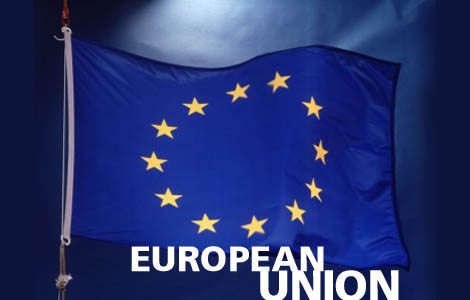EU ministers fear court ruling may encourage illegal immigration
 Brussels - A growing number of European Union governments voiced concern Thursday that a landmark court ruling could make it easier for illegal immigrants to gain the same rights as EU citizens through marriages of convenience.
Brussels - A growing number of European Union governments voiced concern Thursday that a landmark court ruling could make it easier for illegal immigrants to gain the same rights as EU citizens through marriages of convenience.
Calls for the European Commission to clarify, or even change one of the bloc's major achievements - the freedom of movement directive - were topped by Denmark and backed by Austria, Britain, Ireland and Germany.
Britain's immigration minister, Liam Byrne, said "a wide range of member states" had expressed "extremely strong views" about the implications of the ruling during a meeting in Brussels.
According to German Interior Minister Wolfgang Schaeuble, the court decision "could lead to the directive having to be changed".
The so-called Metock case pitted the Irish government against four couples, all involving third-country males who had married British, German or Polish women living in Ireland.
Ireland had wanted to deport the four men on the grounds that they did not hold resident permits in any other EU country prior to their marriages.
But in July, the European Court of Justice ruled against Ireland, saying it could not avoid granting them resident permits.
The ruling is set to have repercussions in other EU countries that have similar rules in place.
Opposition to the Metock ruling has been particularly strong in Denmark, where the ruling centre-right government coalition has to rely on the anti-immigration Danish People's Party.
The Danish government has called on the commission to change the freedom of movement directive so as to mitigate the effects of the case.
But Jacques Barrot, the EU's top justice official, on Thursday effectively ruled out any changes to the directive, which he described as a "linchpin" of the EU.
Instead, he said the commission would take a close look at the EU's existing rules and see whether new guidelines aimed at avoiding such abuses might be needed.
Denmark has been able to rely on the support of Austria, whose interior minister, Maria Fekter, said ahead of Thursday's meeting in Brussels, that the ruling fatally undermined her country's residency rules.
While countries like Denmark and Britain carry out face-to-face interviews with suspect couples in order to ensure that they are not trying to exploit EU residency rules, many other member states take a much more lax approach to marriages involving third-country nationals.
According to Irish officials, 15 per cent of the 4,600 applications for residency they received since 2006 involved failed asylum-seekers.
And women in Poland and Bulgaria have been known to be offering to marry immigrants for as little as 800 euros (1,175 dollars).
Dutch officials said governments should crack down on such marriages of convenience rather than seek to limit people's freedom of movement. (dpa)